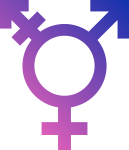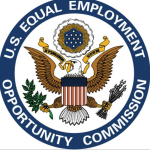By STEPHANIE TREFCER

People who identify as transgender face more likely discrimination and higher levels of unemployment, a leading expert said.
Professor Jill Weiss, who teaches Law and Society at Ramapo College and is a consultant for workplace issues, has researched the transgender community and overall workplace diversity. From prior research, she said that discriminatory behavior among employers and employees are one of the bigger problems individuals who identify as transgender face.
“The unemployment rate for transgender people is twice that of the general population, and for trans people of color, it’s four times higher,” she said.
When asked about employers and their reasoning behind their discriminatory behavior, Weiss said employers are entitled to fire someone for any reason or no reason at all, as long as it is not a discriminatory reason.
“It is fairly easy for a thoughtful employer to cover their tracks if they don’t like a transgender person, ” Weiss added.
Even when the employers do decide to hire, studies show that over 90 percent of trans people have experienced harassment in the workplace.
Weiss agrees that it is harder for trans people to become hired, but it depends on issues of ‘passing’ privilege. “The more gender-conforming a person appears, the easier it is to get a job.”
The National Center for Transgender Equality did a study on the issues the community faces in the workplace. An estimated 97 percent have experienced invasion of privacy, verbal abuse, and physical or sexual assault as a result of their identification.
Gaining Student Perspective
Kez St. Louis, a student at Ramapo College and the queer peer services coordinator, believes that discriminatory behavior depends on where you work.
As a student employee at the Women’s Center, a safe zone for all students, St. Louis does not face any discrimination personally as a member of the trans community.
“Many trans people are not as lucky to have accepting jobs where they can be out,” St. Louis said.
St. Louis added that although discriminatory behavior is not something faced personally, the issue of using proper pronouns is where the line becomes a little fuzzy.
“Names and pronouns are a big issue; know that our names and pronouns are not preferred, they are just names and pronouns that you must use.”

The Equal Employment Opportunity Commission decided a case about a year ago that found that intentional failure to use proper name and pronouns over a period of time is a violation of the Civil Rights Act.
The EEOC also found that through statements filed for sexual harassment, only 74 of the 147 receipts were resolved, as of the FY 2013. As of FY 2015, however, 81 of 112 receipts were resolved.
“The only problem I see myself having upon being hired full time somewhere is if coworkers are not accepting of my pronouns,” St. Louis said. “Even then, you could easily correct that with the right programming board to set up company meetings so everyone can get educated.”
Whether it is interviewing for a job or becoming a supervisor in charge of hiring, it is important to get educated. Just ‘following orders’ is not being open minded to someone else’s experiences.
“Know that everyone’s experience of being trans is different and that no one has a right to police a trans person’s expression of their gender,” St. Louis said.
It is surprising to learn that transgender people have a higher unemployment rate than the general population. It is also interesting that the EEOC decided that failure to use proper name and pronouns over a period of time would result in a violation of the Civil Rights Act.
As far as optimizing the SEO, I think the headline does a good job at informing the reader what the subject of the article is. It also includes the major keywords of the article, increasing the chances of a reader finding it when they search terms like “transgender discrimination” or even “discrimination in the workplace.”